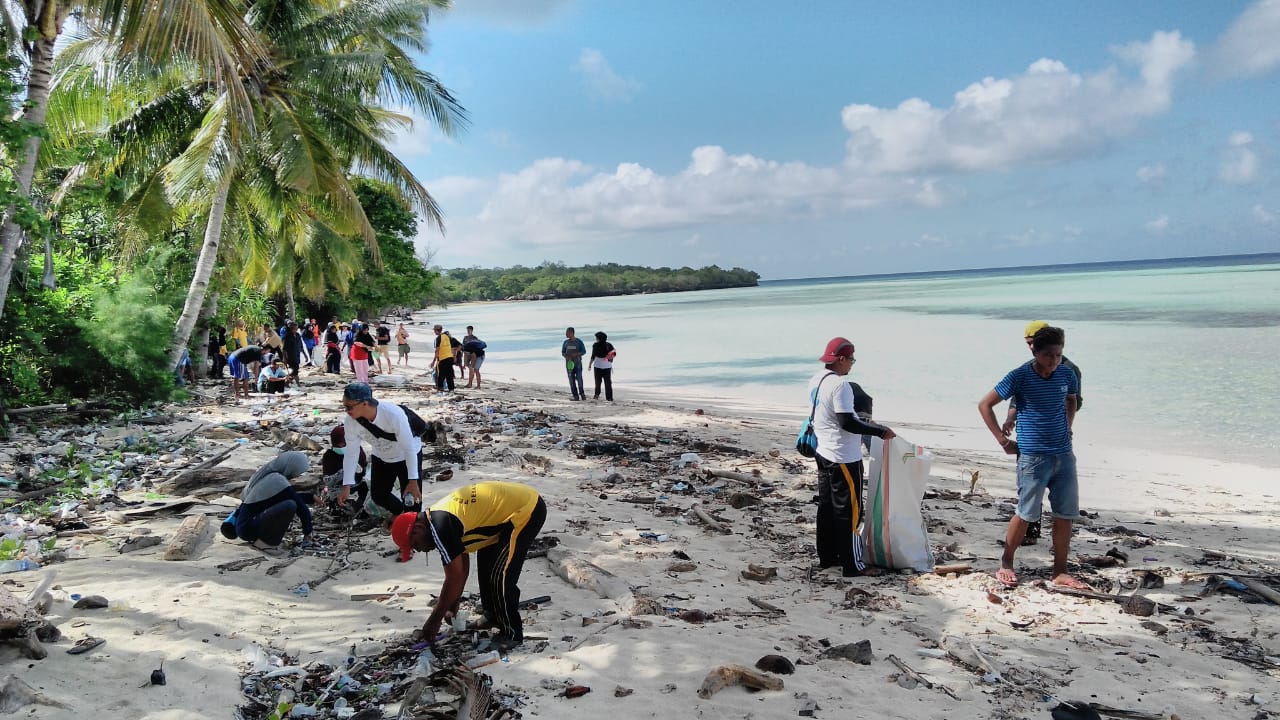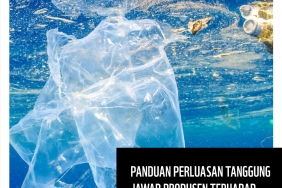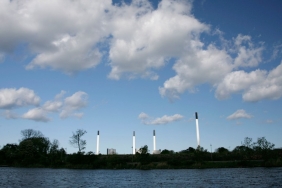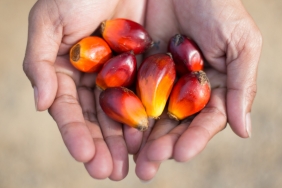THROUGH PLASTIC FREE NETWORK, SOUTHEAST MALUKU PEOPLE AGAINSTS GARBAGE
Southeastern Maluku has beautiful beaches that are famous for their exoticism, some of which have even gone global. However, the fact is that during certain seasons this beautiful white sand beach receives trash which will certainly affect the beauty of these beaches.
Based on basic data from the Environmental Service of Southeast Maluku Regency, the amount of waste piled up every day reaches 11,771.5 kg. Sources of this waste were identified as coming from residential areas, supermarkets/retails, traditional markets and tourist areas. There is no UPT that manages waste directly so that the operational work of waste management in Southeast Maluku has not been carried out optimally.
The difficulty of decomposing plastic waste is definitely a serious threat to the sustainability of the tourism sector as well as fisheries in Southeast Maluku Regency, which is intensively promoting tourism and fisheries as the leading sector for economic development.
In line with the enthusiasm to reduce the production of plastic waste in the sea, WWF-Indonesia targets that by 2023 there must be a 30% reduction in plastic waste production. "A good waste management policy comes from measurable and accountable data" said Andreas Hero Ohoiulun, Project Executant Inner Banda Arc Seascape during the Plastic Free Network Survey and Ocean Plastic Waste Monitoring Training in Southeast Maluku on Thursday, January 24 2019 which took place on the Ohoibun Coastal Coast.
Involving elements of the government, environmental tourism activist community, Tual State Fisheries Polytechnic and Southeast Maluku Marine Fisheries Vocational School, this activity received high appreciation and attention from each participant as seen by their enthusiasm in recording every plastic waste encountered in the waste collection training on the coast of Ohoibun Beach. By adopting and modifying the method from the CSIRO (Commonwealth Scientific and Industrial Research Organization) Global Plastic Pollution Project, Australia which refers to the stratified random sampling method (stratified random sampling) using a transect system. The current Garbage Monitoring shows that soft plastic waste has the highest amount, followed by hard plastic waste at 39.01% and 19.51%, respectively.
It is hoped that later from this activity Plastic Free Network will be able tocreate a voluntary national monitoring program that produces data to be used to build a national baseline data in Southeast Maluku Regency. This is because the old adage says that "Earth is not an inheritance from our ancestors, but a deposit from our children and grandchildren."





